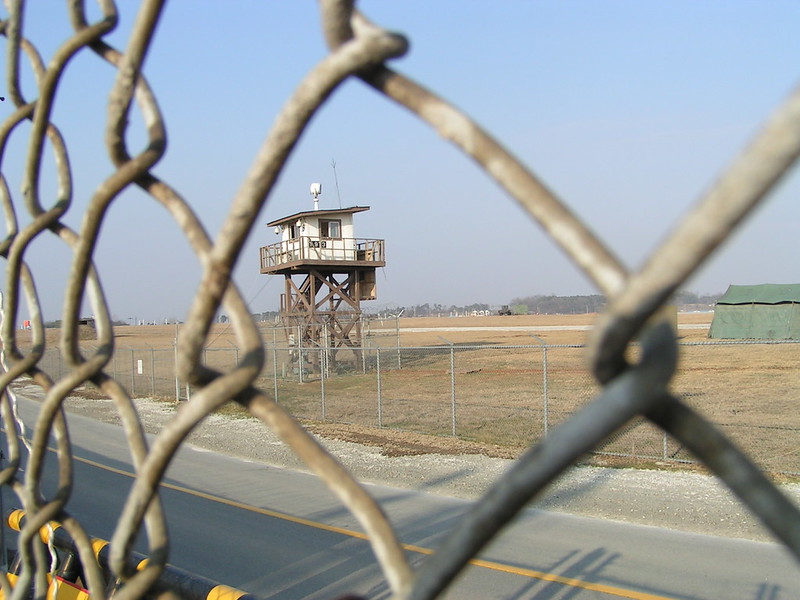Summary | Excerpt | Reviews | Beyond the Book | Read-Alikes | Genres & Themes | Author Bio

Critics' Opinion:
Readers' Opinion:
First Published:
Feb 2023, 384 pages
Paperback:
Dec 2023, 384 pages
 Book Reviewed by:
Book Reviewed by:
Jennifer Hon Khalaf
Buy This Book
This article relates to Skull Water
 The novel Skull Water by Heinz Insu Fenkl is divided between the experiences of the character Big Uncle during the Korean War in 1950 and his nephew Insu's adolescence in the 1970s. It shows how alliances and protections formed during the war gave rise to familial ties and cultural integrations in the postwar era. Insu's identity as the son of a German-American military father and Korean mother reflects the enduring impact of the United States' involvement in Korea.
The novel Skull Water by Heinz Insu Fenkl is divided between the experiences of the character Big Uncle during the Korean War in 1950 and his nephew Insu's adolescence in the 1970s. It shows how alliances and protections formed during the war gave rise to familial ties and cultural integrations in the postwar era. Insu's identity as the son of a German-American military father and Korean mother reflects the enduring impact of the United States' involvement in Korea.
The Korean War was a proxy war for larger powers' overarching grabs for geopolitical power within the Cold War. These maneuvers led to a bloody and devastating conflict from 1950 to 1953, in which about 70% of deaths were those of civilians. Subsequent to Japan's defeat in World War II, Korea was divided and occupied by the United States in the south and the Soviet Union in the north — this division, along the 38th parallel, largely remains the current border between North and South Korea. An invasion of South Korea on June 25, 1950 was instigated by Korean communist forces backed by the Soviet Union and China. While the US was initially reluctant to engage, President Truman ordered troops to South Korea under the leadership of General Douglas MacArthur on September 8, 1950, pushing North Korean troops back to the 38th parallel. Civilians and troops were forced up and down the peninsula, with families frequently being divided between the ideological factions.
Big Uncle's fight for survival during the Korean War reflects this chaotic discord of identities, ideologies and geopolitical manipulation. All the relationships he forms to protect himself are tentative and uneasy, with the constant threat of betrayal by military personnel as either a North or South Korean sympathizer.
The years directly following the war were economically depressed and unstable for South Korea, in contrast to the growth experienced by North Korea, due to widespread corruption and a lack of unified leadership, as opposed to the more organized government in the North. During this time, the US continued to maintain a military presence in South Korea and exercise economic and political influence in the country.
Between 1946 and 1976, the US provided $12.6 billion in economic assistance to South Korea, about twice as much as it provided to all of Africa and roughly the same amount it provided to all of Latin America during this same period. Despite the sums involved, South Korea remained impoverished, reflecting an unhealthy dependence on US financial aid and imports and giving rise to the black market economy that Insu, his friends and his family all engage in throughout Fenkl's novel. Invariably, South Korea's sovereignty was fettered by this economic dependence, as the US had considerable influence over South Korean politics (given that it was responsible for more than half the government budget), resulting in resentment towards the larger nation's paternalistic role. Eventually, South Korea became highly developed with a strong economy, in part due to the technical training and education that the US provided, which could later be applied to a growing business and professional sphere. For some South Koreans, continued cultural exchange and moves away from dependence have led to a sense of mutual respect between the two countries.
While a formal agreement to end the Korean War was finally reached in December 2021 between North Korea, South Korea, the US and China, no peace treaty was ever signed. The US still has a strong military presence in South Korea today.
Ultimately, the drastic changes that South Korea underwent from the war, politically, economically and culturally, are fundamentally intertwined with US influence — reflecting a complicated relationship of dependence, pain and growth.
View of the Camp Humphreys military base in Pyeongtaek, South Korea, 2006. Photo by rabble (CC BY-SA 2.0)
Filed under People, Eras & Events
![]() This "beyond the book article" relates to Skull Water. It originally ran in February 2023 and has been updated for the
December 2023 paperback edition.
Go to magazine.
This "beyond the book article" relates to Skull Water. It originally ran in February 2023 and has been updated for the
December 2023 paperback edition.
Go to magazine.




Fanaticism consists in redoubling your effort when you have forgotten your aim
Click Here to find out who said this, as well as discovering other famous literary quotes!
Your guide toexceptional books
BookBrowse seeks out and recommends the best in contemporary fiction and nonfiction—books that not only engage and entertain but also deepen our understanding of ourselves and the world around us.